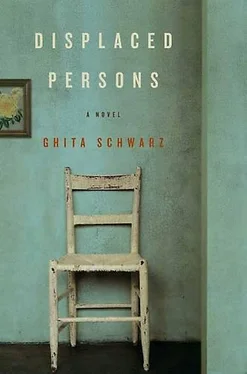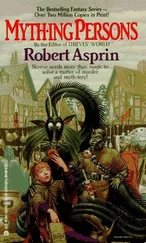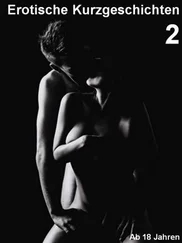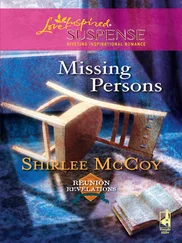After a moment, he said, Where do you sleep?
Not here, she said. I live on a Zionist kibbutz, a new one they started a few kilometers south, on good farmland. So we don’t have to depend on ration cards, like little prisoners again. We prepare for these British-her mouth turned fierce-to let us out of here, to let us into our homeland. Come with me there. You can smuggle yourself out of the camp. It’s an hour’s drive from here.
I-said Chaim-I have a place, not in the camp-I thought you could stay with us-
But she hesitated. They expect me back this evening, she said. And you-already you have missed convoys they let into Palestine. You are young enough to be an orphan-why did you not go on the list?
I don’t know, he said. I am here, I live with-I have a warm place in a home until-I take English lessons-
English! cried Rayzl. To be a stranger in a strange land again! A Bundist, just like your father, refusing Palestine for class politics? Look how it helped him! And since when do the English let you into their country, or the Americans either? English!
CHAIM CAME TO THE house in Celle and lay down on the sofa. He bent his arm over his eyes to block out the remaining afternoon light, and he saw an image of his mother, her own elbow bent at her brow to cover her eyes, yes, once he had seen his own mother lie down like this, perhaps after the first action or perhaps at a different time, at some terrible news or another, he did not remember, saw only her thin body outstretched on the cot in the ghetto apartment, no, it must have been after, long after his brother had been taken-and the image itself made Chaim tear his own arm from his forehead, curl his body into a ball, sob.
After some time he opened his eyes and stared at the wall, covered with floral paper. He did not want to touch it, the false decoration of a home in which he lived as a strange guest. Sometimes he brought one of the young men he had met from outside the print shop to stay in the house, just to feel himself not so alone. But Lazar had not liked to sleep there more than one night at a time, even with the use of a clean sink and the promise of Fela’s pastries. And suddenly Chaim too wanted to escape the little house, the little town, the questions that would surely come tearing at him in the evening as Fela laid out the food on the garden table. He did not want to see them. He wanted to escape every familiar face he saw, every reminder of something he knew. He wanted to be a stranger, completely alone, a newborn, learning new images and new faces.
He pushed his legs out of the house and took Fela’s bicycle toward the camp. On the main road he saw a group of British driving to the Bremen zone, a small island of American soldiers.
“Work,” he said, smiling, flashing his identity card. “I have work in the harbor.” They let him into their truck.
The rubble still covered wide areas near the port, but a few businesses and houses had been rebuilt, and in a small café near one of the piers he sat alone and watched the Americans in civilian clothes flirt and drink with the German women. Two black soldiers walked past him, talking in soft voices too low for him to hear. They were always together, in groups, and it was understood they had their own brigades, separate from the others. He followed their faces as they walked, stared openly at them. They did not seem to notice. In the American zone in Austria he and Fela had passed a camp, but their driver, a Jew, had warned them not to enter, for the Americans forced the Jews to live and work with the Ukrainians and Poles and Latvians. Americans do not separate, the truck driver had said. They say that was what Hitler did! The driver had laughed. Everyone saw the Americans too made divisions. The British did not permit the camp newspaper to publish any stories about the military, but on the radio could be heard the stories of the skirmishes among the Americans, the Negro soldier left beaten on the street, the white soldiers protesting shared meal tables. When Lazar had been liberated, a brigade of Japanese from America had marched into his camp, frightening some inmates who thought the war had been lost to the Axis. Lazar laughed about it now, he confided to Chaim, but even he had been confused. But one could not be confused when one saw a black soldier. A black man was American, immediately recognizable for who he was, a symbol of freedom. When Chaim had first come to Germany, his heart had still jumped at the sight of a uniform, any uniform-but after the momentary shudder he knew to feel relief at the glimpse of a dark face, for he could see at once that these men were Americans, liberators.
Now in Bremen, Chaim sipped his coffee, feeling it spread through his chest. Towns people bustled away from him. Even with his clean clothes and straight hair, he felt himself recognized. What was it? Perhaps his face gave out the light of accusation when a German hurried down a street of the American zone, carrying bread or holding a child’s hand. Or perhaps-yes, he knew it-they could see the fear, a look he no longer had the confidence to hide. Towns people could see who he was, could see through the calm mask of a young man idling, their quick glances registering German from refugee. For a long time he had forced himself to forget the faces of his family, the names of the companions with whom he had fled the ghetto. His talent for disguise had erased the fear from his face. But now it seemed that fear revealed itself like a caption below a photograph. Now it seemed he could be named.
M Y DARLING SISTER . A letter came from Fela’s sister in Palestine, the diminutives and nicknames falling off the page in Yiddish, mixed with the Hebrew that Bluma, so smart, so clever, now spoke every day. Bluma had heard nothing. She too had been writing to the synagogue in their hometown, to HIAS and the American Jewish Joint Distribution Committee for word of sisters, brothers, nephews, nieces, cousins. Bluma had heard nothing until the short letter from Fela, her dear one, her beautiful sister.
Fela wept as she read her older sister’s letter. What chain was more strong than the chain to a sister, even one whom she had not seen since childhood, when Bluma had defied their father and left? Flesh of the same flesh. Bluma had gone to gymnasium when no Jewish girl in their town could dream of it-the eldest, Pnina, had gone to work to support Bluma’s schooling, expensive even when the family store had prospered. And what had Bluma learned among the other students? She had picked up ideas, become a socialist, and at last joined a group of young Zionists and sailed off. It had been terrible at the time, the horror of her father and mother at the rebellion of their most gifted child, but now it seemed wise, prophetic.
Two sisters, one chain. And yet the relief that Fela felt when she opened Bluma’s letter, the gratitude for a word from her blood, my darling sister , did not fill her. It was as if she were still starving and given just a morsel of bread to eat. She longed to see a family face in the refugee camp, longed to read even a distant cousin’s name on a list of survivors. She longed for Moshe, the touch of him covering her, his breath like a blanket to warm her. Fela too had defied her father when she ran away, in the first weeks of the bombing, when it was still possible to flee to White Russia. But it was not for politics that she had disobeyed.
Thanks to Pavel’s trading, Fela now had clean clothes and an adequate amount of food; the bloating in her legs and belly had subsided; she looked almost as she once did, and she had begun to menstruate again. But the ache hadn’t left her. Now that her body could do more than subsist it began to remember other pains, not just hunger or fear. Once, cycling down the street with Pavel, she thought she saw Moshe, and as the small man with his brown curls and calm eyes had come closer, her neck had tensed, as if they were together, at night, he about to touch her. It wasn’t him, of course; she saw that a moment after the constriction in her abdomen stopped. But now the face of the man in the street, the man who was not Moshe, became something she longed for, a reminder of the face she had loved and was beginning to forget. But she didn’t see him, the false Moshe, again.
Читать дальше











